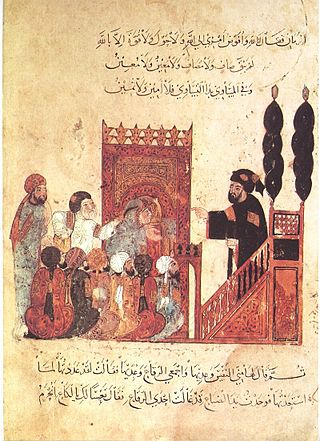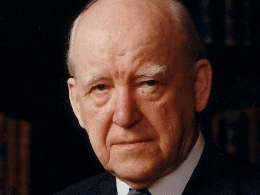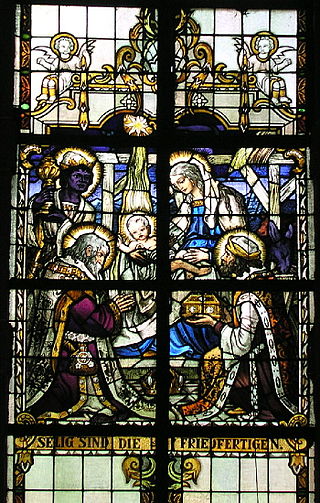Related Research Articles

The Order of Preachers abbreviated OP, also known as the Dominicans, is a Catholic mendicant order of Pontifical Right for men founded in Toulouse, France, by the Spanish priest, saint and mystic Dominic of Caleruega. It was approved by Pope Honorius III via the papal bull Religiosam vitam on 22 December 1216. Members of the order, who are referred to as Dominicans, generally carry the letters OP after their names, standing for Ordinis Praedicatorum, meaning of the Order of Preachers. Membership in the order includes friars, nuns, active sisters, and lay or secular Dominicans. More recently there has been a growing number of associates of the religious sisters who are unrelated to the tertiaries.

Lancelot Andrewes was an English bishop and scholar, who held high positions in the Church of England during the reigns of Elizabeth I and James I. During the latter's reign, Andrewes served successively as Bishop of Chichester, of Ely, and of Winchester and oversaw the translation of the King James Version of the Bible. In the Church of England he is commemorated on 25 September with a lesser festival.

Pope John XXII, born Jacques Duèze, was head of the Catholic Church from 7 August 1316 to his death in December 1334.

Girolamo Savonarola, OP or Jerome Savonarola was an ascetic Italian Dominican friar from Ferrara and preacher active in Renaissance Florence. He was known for his prophecies of civic glory, the destruction of secular art and culture, and his calls for Christian renewal. He denounced clerical corruption, despotic rule, and the exploitation of the poor.

Anthony of Padua or Anthony of Lisbon was a Portuguese Catholic priest and friar of the Franciscan Order. He was born and raised by a wealthy family in Lisbon, Portugal, and died in Padua, Italy. Noted by his contemporaries for his powerful preaching, expert knowledge of scripture, and undying love and devotion to the poor and the sick, he was one of the most quickly canonized saints in church history, being canonized less than a year after his death. He was proclaimed a Doctor of the Church by Pope Pius XII on 16 January 1946.

Khutbah serves as the primary formal occasion for public preaching in the Islamic tradition.

A sermon is a religious discourse or oration by a preacher, usually a member of clergy. Sermons address a scriptural, theological, or moral topic, usually expounding on a type of belief, law, or behavior within both past and present contexts. Elements of the sermon often include exposition, exhortation, and practical application. The act of delivering a sermon is called preaching. In secular usage, the word sermon may refer, often disparagingly, to a lecture on morals.

Bernardino of Siena, OFM, also known as Bernardine, was an Italian priest and Franciscan missionary preacher in Italy. He was a systematizer of Scholastic economics. His preaching, his book burnings, and his "bonfires of the vanities" made him famous/infamous during his own lifetime because they were frequently directed against sorcery, gambling, infanticide, witchcraft, homosexuals, Jews, Romani "Gypsies", usury, etc. Bernardino was later canonised by the Catholic Church as a saint – where he is also referred to as "the Apostle of Italy" – for his efforts to revive the country's Catholicism during the 15th century.

Impeccability is the absence of sin. Christianity teaches this to be an attribute of God and therefore it is also attributed to Christ.

In religious studies, homiletics is the application of the general principles of rhetoric to the specific art of public preaching. One who practices or studies homiletics may be called a homilist, or more simply a preacher.

In Christian theology, the beatific vision is the ultimate direct self-communication of God to the individual person. A person possessing the beatific vision reaches, as a member of redeemed humanity in the communion of saints, perfect salvation in its entirety, i.e., heaven. The notion of vision stresses the intellectual component of salvation, though it encompasses the whole of human experience of joy, happiness coming from seeing God finally face to face and not imperfectly through faith..

Vincent Ferrer, OP was a Valencian Dominican friar and preacher, who gained acclaim as a missionary and a logician. He is honored as a saint of the Catholic Church and other churches of Catholic traditions.

David Martyn Lloyd-Jones (1899–1981) was a Welsh Protestant minister and medical doctor who was influential in the Calvinist wing of the British evangelical movement in the 20th century. For almost 30 years, he was the minister of Westminster Chapel in London.

Henry Suso, OP was a German Dominican friar and the most popular vernacular writer of the fourteenth century. Suso is thought to have been born on 21 March 1295. An important author in both Latin and Middle High German, he is also notable for defending Meister Eckhart's legacy after Eckhart was posthumously condemned for heresy in 1329. He died in Ulm on 25 January 1366, and was beatified by the Catholic Church in 1831.

Matthew 5:9 is the ninth verse of the fifth chapter of the Gospel of Matthew in the New Testament. It is the seventh verse of the Sermon on the Mount, and also seventh of what are known as the Beatitudes.

Alanus de Rupe ; was a Roman Catholic theologian noted for his views on prayer. Some writers claim him as a native of Germany, others of Belgium; but his disciple, Cornelius Sneek, says that he was born in Brittany. He died at Zwolle.

Réginald Marie Garrigou-Lagrange was a French Catholic philosopher, theologian and Dominican friar. He has been noted as a leading neo-Thomist of the 20th century, along with Édouard Hugon and Martin Grabmann. He taught at the Dominican Pontifical University of St. Thomas Aquinas, the Angelicum, in Rome from 1909 to 1959. There he wrote his magnum opus, The Three Ages of the Interior Life in 1938. François Mauriac nicknamed Garrigou-Lagrange as "The Sacred Monster of Thomism".
The popular sermon was a type of sermon in vernacular, the language of common people, that was commonly delivered by Catholic friars of the Franciscan and Dominican orders in the Middle Ages, on Sundays, Feast Days, and other special dates.

Eckhart von Hochheim, commonly known as Meister Eckhart, Master Eckhart or Eckehart, claimed original name Johannes Eckhart, was a German Catholic theologian, philosopher and mystic, born near Gotha in the Landgraviate of Thuringia in the Holy Roman Empire.

The Areopagus sermon refers to a sermon delivered by Apostle Paul in Athens, at the Areopagus, and recounted in Acts 17:16–34. The Areopagus sermon is the most dramatic and most fully-reported speech of the missionary career of Saint Paul and followed a shorter address in Lystra recorded in Acts 14:15–17.
References
- 1 2 First the Bow is Bent in Study: Dominican Education Before 1350, M. Michelle Mulchahey, Pontifical Institute of Medieval Studies, 1998, pg. 401.
- ↑ Censure and Heresy at the University of Paris, 1200- 1400, J.M.M.H. Thijssen, University of Pennsylvania Press, 1998, pp. 13 - 14.
- ↑ History of Universities (Volume 2), Charles Schmitt, Avebury Publications, 1982, pg. 78.